Problems of personal data protection under martial law were discussed at a round table
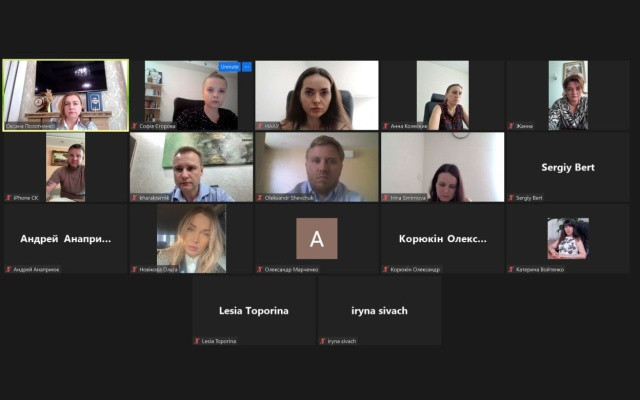
In the context of martial law, the issue of clarifying data on persons liable for military service has become particularly relevant. The state must have up-to-date information on the mobilization reserve. At the same time, this process is accompanied by legal problems.
Some of them were discussed during the roundtable «Protection of Personal Data under Martial Law: Peculiarities and Problematic Issues» organized and held by the Ukrainian National Bar Association's Committee on Human Rights Protection.
«There are many issues related to personal data handling that are not explained by the current legislation. In particular, the joint processing of personal data by different legal entities, subcontracting relations in the processing of personal data, etc., - explained Oksana Polotnyanko, Head of the Committee's Section on Personal Data Protection, noting some positive developments. - Recently, the Ukrainian Parliament Commissioner for Human Rights Dmytro Lubinets provided explanations to some of these problematic issues, which are freely available for review».
Oleksandr Marchenko, a representative of the Ombudsman's Secretariat, drew attention to the threats associated with the processing of personal data. «Today, access to personal information can become a means of influence, abuse and violation of personal freedom, and can threaten a person's safety and even life, - she said. - In this regard, persons dealing with the processing of personal data need to properly organize its processing and ensure the protection of personal data at all stages».
According to available statistics, in 2023, the Commissioner considered 2205 appeals related to violations in the field of personal data protection. Among them:
49% - illegal processing of personal data;
14% - access to own personal data;
16% - organization of personal data processing at enterprises, institutions and organizations;
21% - receiving recommendations and explanations.
The representative of the Ombudsman also said that last year 101 inspections in the field of personal data protection were conducted.
Oleksandr Shevchuk, the Council of Europe's expert on personal data protection, reminded that any personal data protection system has two components: legal and institutional. And all EU member states have had a separate authority for personal data protection since 1995. «The powers that the Office of the Verkhovna Rada Commissioner for Human Rights currently has in this area are insufficient, - the expert is convinced. - This is objective, because in the EU, each body has the right to initiate an inspection, conduct it independently and impose a fine on the offender. There is no need to draw up protocols, go to court or use any other mechanisms. This system has been in place since 1995 and has already proven its effectiveness».
The existence of problems in this area was confirmed by another expert in the field of personal data protection, who previously headed the Department for Personal Data Protection of the Ombudsman's Secretariat Andriy Nikolayev. «Having conducted more than a hundred inspections, I can say that, indeed, the situation with personal data protection is tense... I have not yet met a single organization or body that has not recorded violations, - he said. - However, it is necessary to distinguish between intentional violations and violations due to ignorance. In this regard, it is very important to pay attention to educational processes and legal culture, as this stimulates the development of legislation».
Iryna Smirnova, a member of the Committee's Council, shared with her colleagues the international court practice (Z v. Finland, Odiuvre v. France, S. and Marper v. the United Kingdom) and the practice of national courts (cases No. 804/4069/17, 580/9113/23).
Zhanna Grushko, a member of the UNBA NextGen, gave a legal assessment of the draft Law No. 8153 dated 25.10.2022 «On Personal Data Protection». She noted that according to the document, biometric data includes a signature, fingerprint, and digital face image. «But the Council of Europe says that in fact such data cannot be considered biometric, because it is only personalized information that can be transmitted from separate sources. Whereas a digital signature, fingerprint and digital image are identifiers that confirm the presence of certain biometric data», - the lawyer explained. In her opinion, the definition of biometric data in the draft law should be edited.
Z. Grushko also highlighted the liability for offenses in the field of personal data protection. The supervisory authority here is actually the Verkhovna Rada Commissioner for Human Rights, which conducts inspections and takes measures to impose sanctions on offenders. At the same time, the draft law does not propose any relevant changes to the Code of Administrative Offenses. «We can say that the fundamental points of this draft law provide for absolute mutual exchange of databases and electronic registers, but the biggest problem is that Ukraine should be able to receive information from foreign countries not only in criminal proceedings», - the lawyer added.
Popular news

Discussion
Why lowering the age of marriage lacks legal logic
Although until 2012 there was a provision in family law that allowed children to marry from the age of 14 under certain circumstances, its return to Ukrainian law would contradict international obligations and the logic of criminal law.

Self-government
A report on Ukrainian advocacy was presented in the European Parliament
Can a shadow report on advocacy replace the political framework of the Roadmap on the rule of law with demands for the restructuring of self-government? Where is the line between accountability and the seizure of institutions? And how can we respond to narratives with data rather than impressions?

Guarantees of the practice of law
Proceedings opened following attack on advocate in Dnipro
The Committee for the protection of advocates' rights and guarantees of legal practice of the UNBA appealed to law enforcement agencies in connection with an advocate's report of an attack while performing his professional duties. The information was entered into the Unified Register of Pre-trial Investigations and a pre-trial investigation was initiated.
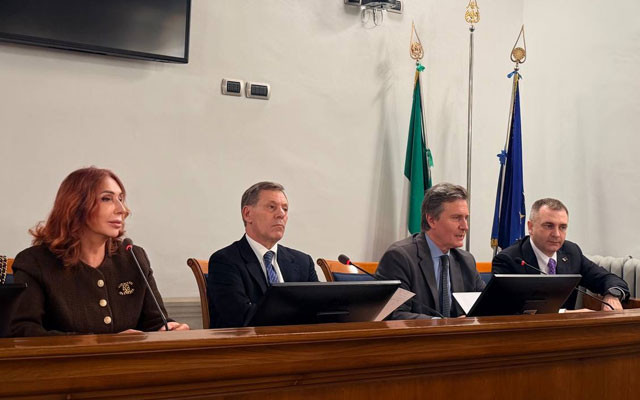
Interaction
«With us — to Europe»: Italian advocacy supports UNBA initiatives
On January 30, a meeting was held in Rome between a delegation from the Ukrainian National Bar Association and the National Bar Council of Italy (Consiglio Nazionale Forense, CNF) on the standards and practices of the legal profession and their significance for Ukraine's European integration process.
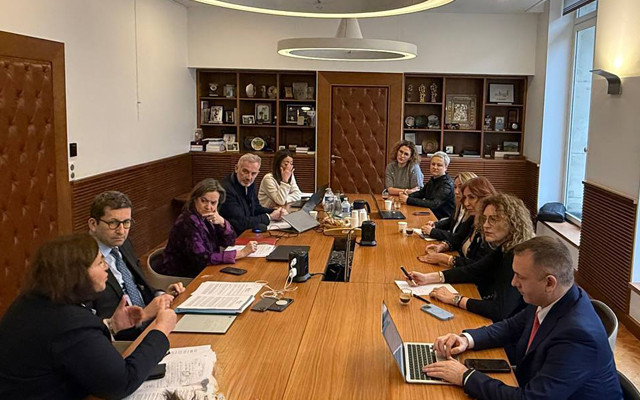
Interaction
France confirms cooperation with UNBA on reforms in the field of the rule of law
On January 29, a working meeting between representatives of the Ukrainian National Bar Association and the French National Bar Council (Conseil National des Barreaux, CNB) took place in Paris.
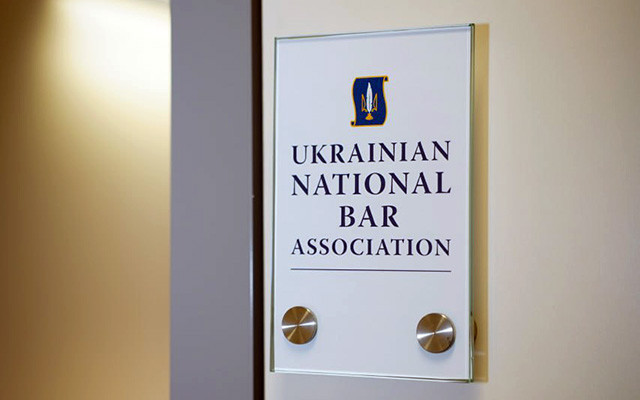
Abroad
UNBA office opens in EU capital
To strengthen the institutional presence of the Ukrainian advocacy community at the European level, an office of the Ukrainian National Bar Association has been opened in Brussels (Belgium), which will serve as a permanent platform for dialogue with European partners.
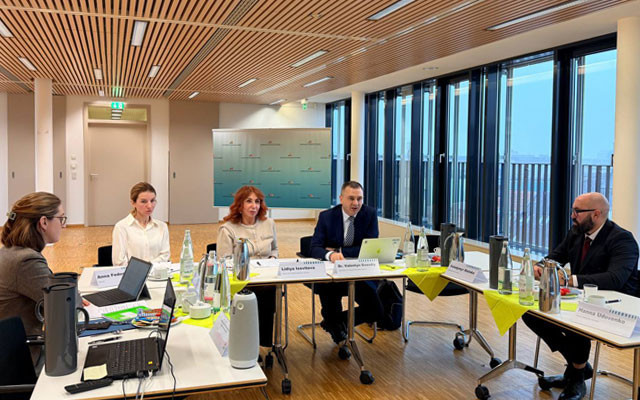
Interaction
UNBA and BRAK discussed European integration priorities and regulation of the profession
On January 26, a meeting was held between representatives of the Ukrainian National Bar Association and the German Federal Bar Association (Bundesrechtsanwaltskammer, BRAK).
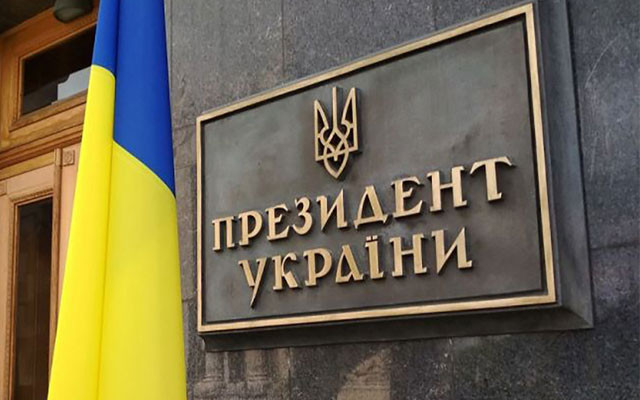
Guarantees of the practice of law
The President was urged to sign the law on strengthening guarantees for advocacy activities
The professional community of advocates called on Ukrainian President Volodymyr Zelenskyy to sign Law No. 4547-IX, which strengthens guarantees for advocates' activities, in particular by introducing liability for identifying an advocate with a client.
Publications

Volodymyr Matsko Extradition as a systemic form of rights violations

Victoria Yakusha, Law and Business The anti-corruption vertical cannot «take care» of the Bar as an institution, - acting head of the HQDCB

Censor.net Protecting advocates – protecting justice: addressing concerns about the new law

Ihor Kolesnykov A BRIEF SUMMARY REGARDING THE APPLICATION OF THE ORDER ON EXTENDED CONFISCATION IN LATVIA REGARDING FINANCIAL ASSETS OF…

Valentyn Gvozdiy WORKING IN A WAR ZONE

Lydia Izovitova Formula of perfection

Sergiy Vylkov Our judicial system is so built that courts do not trust advocates

Iryna Vasylyk Advocacy in the proclamation of Independence of Ukraine
